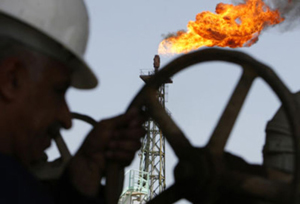
In October of 2010, Move One reported on the economic recovery of Basra as the first wave of post-war energy exploration companies set up operations and introduced a level of prosperity and stability that has not been seen in years. Since then the city has become a focal point for foreign investment in southern Iraq, but progress has brought its own set of problems.
In the wake of the 2003 war in Iraq, Basra was the scene of some of the most intense fighting and prolonged civil unrest in the entire country. A city of three million people was left without even the most basic services or essential infrastructure. Since then, the streets that were by turns dangerous and deserted are now filled with locals and expats from around the world, engaged in energetic commerce and recreation. As the date for the US military withdrawal grows closer, developers are arriving in increasing numbers seeking contracts for the reconstruction projects that will be turned over to civilian companies.
In May 2011, the Basra Investment Commission announced the latest round of investment licenses to be awarded to local and international companies, valued at around $174 million. To date, the awarded licenses for reconstruction projects total an estimated $874 million, which is still less than a third of what the government is expected to spend on the restoration of Basra's housing, schools, power supplies, services and roads over the next two years.
Whilst the US withdrawal has caused concerns about security, Basra has thrived on the steady transition from government control to private enterprise. The return of the international energy companies has caused enormous influxes of capital into every niche of the economy, from the housing market to retail and transportation.
Basra's position, in terms of port access and proximity to the Iraqi oil fields, have made it the obvious choice for the first waves of international investment, but there are challenges both old and new to the process. Expat businesses have traded their security concerns for issues of government corruption, complex regulations and the lack of direct air-travel access. It would be a tall order to find any business that would prefer a return to the old days of violent civil unrest, but the current environment can still pose a challenge for the unprepared.
It is the oil industry more than any other that is spearheading Basra's renewed fortunes. The government has announced its intention to position Iraq as a major exporter, and intends to raise its current output from 2.6 million barrels per day to over ten million within just a few years. Nearly all of the oil fields being developed to meet this projection are within two hours by road from Basra.
The largest field in the development plan is the Rumalia site, under license to BP and CNPC. The project employs thousands of locals and hundreds of expats, representing an enormous influx of capital into the local economy, both in direct spending and peripheral services. Oil exportation also represents a revenue stream for the local authority, guaranteed by the national government at a rate of $1 per barrel. This currently works out to around $51 million per month for civil projects, and will increase significantly if the oil development plans come to fruition.
Red tape and official corruption have been long standing problems in the region, both before and after the war. The central government has recognized this and made uncharacteristically effective steps to keep corruption to a level where it is no longer discouraging to investment, and has also altered the local regulatory framework. Recently introduced taxation laws offer certain categories of foreign companies and investors corporation tax holidays for up to 15 years, waives equipment import fees for up to as many as three years and can exempt the overseas transfer of profits.
Zaab Sethna, regional head of Northern Gulf Partners, a company recently awarded an investment license, told reporters that "There is some corruption elsewhere in Iraq but we haven't seen the like in Basra…Where there is some security concern elsewhere in Iraq, we don't have such concerns in Basra. The local security and police forces are very helpful."
Basra seems to be the role-model for Iraq's route to recovery, displaying a willingness to participate in international trade and commerce at odds with the insularity still prevalent in other regions of the country. Whether Basra's leaders and authorities will be able to manage the massive influx of investment without falling prey to the malaises common to boom-towns has yet to be seen.
Move One Logistics has been active in Iraq since 2003. The company has seven strategically located offices throughout the country (including facilities in Baghdad, Erbil, Balad, Camp Victory, Umm Qasr and Basra) and a massive, 42,000 sqm compound currently in the final stages of completion in Az Zubayr. This new location is near the main highway connecting Safwan and Umm Qasr to Basra, and was chosen for its strategic proximity to the major southern ports of entry and the North and South Rumaila oil fields. The compound in Az Zubayr will provide direct access to the transport infrastructure, meaning that Move One will have an extremely rapid dispatch time across Iraq.